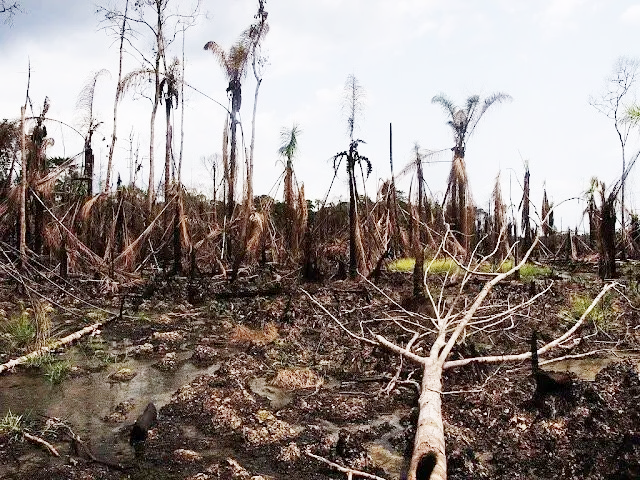The effects of climate change have touched virtually the entire world. Nigeria is no exception. Between September and November this year, 612 Nigerians lost their lives to a national flood. 83,000 homes were destroyed, leaving 1.4 million people homeless.
Environmental scientists associate climate change effects with the depletion of the ozone layer in the atmosphere. The ozone layer prevents the heat from the sun from reaching the earth at high intensity.
It is depleted when certain gases are released into the atmosphere from human and natural factors. These gases are: carbon monoxide, Sulfur dioxide, chlorofluorocarbon, and similar.
Agricultural sectors, including fishery and forestry are more predisposed to the adverse effects of climate change.
Climate change in Nigeria has led to seasons of drought and excess flood, which affect agricultural activities and cause a loss of shelter.
In 2019, the National Emergency Management Agency revealed that floods had displaced approximately 1.9 million Nigerians.
In Nigeria, crop production depends on location and climatic conditions. Crops that need rainfall to grow are abundant in the south, while those that don’t need rainfall to grow more in the north.
Excess rain and drought associated with climate change affect the natural distribution of crops in Nigeria and reduce their production in large quantities to meet the population’s demand.
For instance, climate change may cause stunted growth of crops grown in Northern Nigeria because these crops don’t thrive in soils flooded with water from excess rain. Likewise, some crops cultivated in southern Nigeria may wither during prolonged drought periods because these crops need rainfall to grow.
Food scarcity is a consequence of low crop yield, which is characterized by inferior quality and quantity of food crops because of harsh climate conditions. Therefore, food crops are poorly distributed to other geopolitical zones where such crops don’t grow.
Tomatoes, for example, are produced in large quantities in the north and if this declines due to unfavourable climatic conditions, other regions of the country will experience reduced supply.
Livestock animals like goats and cows feed on the grass to grow, and their products such as beef or milk are affected when these animals don’t feed well. Irregular climatic conditions destroy farmlands these animals graze on. Also, flooding promotes the growth of pests that attack these farm animals and further depreciate their overall commercial value.
Agriculture is one of the major contributors to the Nigerian economy and a source of income for most Nigerians. These individuals are either rural dwellers who are full-time farmers or urban dwellers who are part-time farmers. Hence, climate change destroys farmlands and hinders income generation from agriculture and livestock farming at national and personal levels.
From the angle of health, climate change increases the burden of diseases in Nigeria, especially malaria. Mosquitoes breed in stagnant waters and they spread to cause malaria. Life-threatening malaria complications are common among the extremes of individuals-young and old people. This can put a strain on areas such as public health and nursing.
Also, wildfires and dust storms occur during drought, and these environmental hazards cause respiratory illnesses in some individuals. Climate change increases the number of diseases and causes preventable deaths among Nigerians if left unchecked.
Industrialized countries such as the United States and China are the major culprits of climate change. But while that is true, individual global citizens can play their part to reduce the ugly development, including Nigerians. Reduction in deforestation activities is a veritable step in the right direction. Trees absorb harmful greenhouse gases.
But while we still have the effects of climate change with us, there is a need for Nigeria to adapt and mitigate the negative impact of climate change at the national and individual levels.
To adapt to climate change, the federal government needs to invest in agricultural science research so that scientists can produce crops that are resistant to harsh climatic conditions.
Mitigation also involves enforcing the Nigerian climate change policy and enacting laws that prohibit the release of toxic gases from industrial areas, especially by petroleum companies in the Niger Delta region.
The federal government should collaborate with stakeholders in the different ministries to ensure that policies are revised and implemented based on relevant data and current environmental needs and challenges.
Climate change slows the economic growth in Nigeria because it affects multiple economic sectors that are sensitive to it.
There should be public awareness campaigns through mass media channels to educate Nigerians on the negative impact of their activities on the environment.





